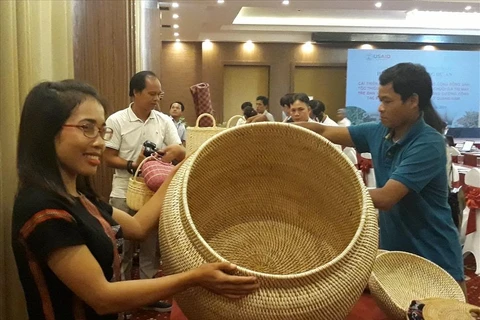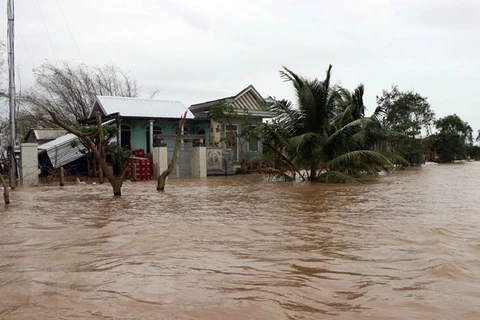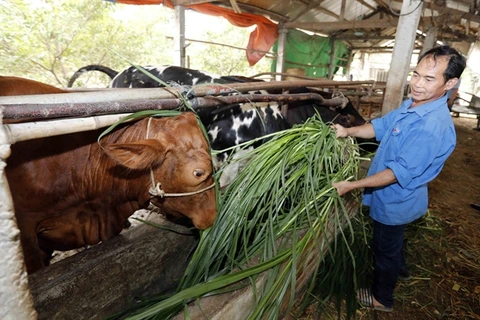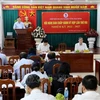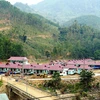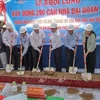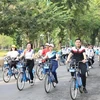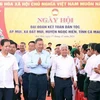 Le Van Dong, deputy director of the provincial Department of Agriculture and Rural Development speaks at the meeting (Photo: VNA)
Le Van Dong, deputy director of the provincial Department of Agriculture and Rural Development speaks at the meeting (Photo: VNA) The Department of Agriculture and Rural Development and the friendship union of the province reviewed the project at a meeting on March 26.
Accordingly, the project was implemented from July 1, 2023 – March 31, 2024 with a total budget of more than 2.7 billion VND (nearly 108,250 USD).
It focused on providing financial support and technical training in cattle raising and beekeeping to poor households, Khmer households, and vulnerable women in Cang Long, Tra Cu, and Cau Ke districts. As a result, the beneficiaries have significantly improved their income.
Le Van Dong, deputy director of the provincial Department of Agriculture and Rural Development said this is the third consecutive year SPIR has collaborated with the locality to work for the goal of reducing the rate of poor households through livestock and crop farming models.
Over the past three years, SPIR has provided livelihood support to 239 disadvantaged households with a total budget of 7.1 billion VND, including 220 households specialising in cow breeding, 14 households practising beekeeping, and five households engaging in greenhouse vegetable cultivation.
The models have contributed to developing concentrated livestock areas in the direction of forming value chains, ensuring biosecurity, disease control, and environmental protection; and fostering sustainable economic development for vulnerable households./.
VNA
